- Home
- Tessa Dawn
Blood Web Page 10
Blood Web Read online
Page 10
And truth be told, he had made the shit up for centuries, flying by the seat of his pants, with only one clear compass to guide him: his unshakable love for two hazel-eyed troublemakers. And now, for some bizarre reason, it just sort of hit him—he wasn’t accustomed to being on the receiving end of the nurturing, and he wasn’t quite sure how to take it.
Eyeing each warrior in turn, he blinked both eyelids in quick succession, removing the moisture that was threatening his corneas.
Damn.
Where were these emotions coming from?
“You all right?” Saxson asked, eyeing Santos attentively.
“Yeah, I’m good,” Santos muttered, “just thinking about the past.” He meandered toward the floor-to-ceiling windows and looked out over the lake. “I appreciate you guys having my back.”
Now this made Ramsey snarl. “You know,” the warrior said brusquely, “we’ve always had your back, even when we were younger. You may have stepped up like a Viking, and there’s no question, you made a helluva difference—but we all played a role in our family’s survival.” He softened his delivery just a bit. “You think we didn’t know…you think we never talked about it…how much you also needed us, how much you needed to be needed?”
Ramsey’s words struck Santos’ heart like a hammer striking an anvil, and he couldn’t turn around and look at him. “Saxson?” he asked, the unspoken question implied.
The youngest twin cleared his throat, his discomfort as obvious as the others’. “We needed you to be like a sire, Santos—it gave us a sense of control…predictability…heck, sanity—but you needed us to be like your sons. It’s how you kept Mom and Dad alive…for all of us.”
Santos bent his head toward the window and rubbed his forehead with his hand.
They were right.
As the odd son out, a vampire without a twin, Santos had almost been destroyed by Santiago’s death, and knowing how much he was needed by his brothers had pulled him back from the brink.
Ramsey lumbered forward, his heavy footsteps echoing off the white oak floors. “Look,” he grunted, his voice thick with intensity and unusual emotion, “none of us are babes in the woods anymore. We’re all Master Warriors. Hell, we’re the house of Jadon’s sentinels, and we did more than survive—we grew up to become the king’s protectors. We secure the vale, and we vanquish our enemies, but we’ve never stopped being a family, first.” He let the declaration linger for a couple of seconds before pressing forward. “Point is,” he barked, “Saxson and I aren’t about to let anything happen to you, Santos—not on account of some ancient, evil omen. The Curse isn’t going to harm you, and The Blood isn’t coming near you. No matter what goes down…no matter how this month plays out…nothing is going to touch you, big brother, not while we draw breath.”
Silence permeated the lake house like darkness permeated night, until Santos finally turned around, leaned back against the window, and rested the heel of one foot against the glass, his head falling backward.
He couldn’t respond to Ramsey’s declaration.
Not with words.
They were far too inadequate.
Besides, he knew if he tried, he might just fall apart.
So he curled his hand into a fist, placed it over his heart, and thumped it two times: one tap for each brother.
Saxson nodded and returned the gesture, placing his fist over his heart, and his luminous eyes spoke volumes: We would kill for you; we would die for you; and the three of us are in this together.
In his own rugged fashion, Ramsey stared Santos down for the space of several intense heartbeats before he finally reached for another toothpick. “Just so long as you feel us,” the brutal warrior grunted, speaking around the obstruction.
“I feel you, Ramsey,” Santos said earnestly, “both of you, and it’s mutual.”
So there it was.
The long and short of it.
I love you was not something the Olaru brothers said often—they weren’t very big on open emotion—but they had practically shouted the sentiment, this night in the lake house, without uttering a single word.
And all three sentinels had heard each other clearly.
Santos stepped outside, onto the top tier of his polished, stamped-concrete deck, needing to grab a breath of fresh air.
Needing a moment of solitude.
He needed to collect his thoughts, while his brothers continued to work on strategy. He needed to concentrate, for a moment, on Natalia Giovanni; the next few days of his Delphinus Blood Moon; and what it would take to get through them.
In truth, he knew he had a lot of headway to make up with the mysterious, beautiful female, and the burden was sitting squarely on his shoulders like a two-ton vest sewn from bricks.
The woman was a paradoxical, delicate, defiant enigma.
She was smart as a fox, and her self-protective instincts were powerful.
She was cunning, quick, and would not just fall into his arms—come into his world—like a joyful, energetic puppy bounding toward its beloved master.
No one was going to master Natalia.
And that was not what Santos wanted.
Yet and still, every instinct in his ancient, rational mind—his primordial, vampiric body—told him to take charge now: remove her from that compound, consequences be damned; let the chips fall where they may with regard to the innocent captive women; and convert Natalia tonight…make his female immortal.
Make her stronger.
Make her supernatural.
Try to make her invincible, or at least as close to invincible as possible.
But Santos was also a male of honor—he was Santiago and Ruth’s true son—and beyond his duty to the Curse, he was honor-bound to that which was moral and correct. And he wanted to win Natalia’s heart as well as her trust. Good, bad, or indifferent, that gorgeous female’s soul—her pain, her duty, her very core—was twisted around that fortress like vines around a trellis. Natalia was virtually tethered to those helpless women…she always had been…which made the only path forward relatively clear-cut: Setting those women free was the only way to free Natalia.
And while it was almost certain, the moment the raid was over, Natalia’s first instinct would likely be to run—as far and as fast as she could, from Santos—the sentinel had seen the longing and the hunger in her eyes. He had seen the wanting, the need, and the emptiness in her soul. And no one—not even the daughter of a corrupt, wicked man—was meant to live with that much loneliness. Not unlike the final phase of a lunar eclipse, a beacon of light transcended the darkness in Santos’ thoughts; his mind meandered back to his brothers; and a smile creased the corners of his mouth.
Warmth filled his heart.
Peace infused his soul.
And everything settled into place, even as the moon shone brilliantly above him and reflected off the lake.
He chuckled softly, recalling fists over hearts—the way Saxson had returned Santos’ gesture and Ramsey had declared his fealty: how he had stared Santos down and underscored his sentiment, spitting it out around a blasted toothpick. And it struck Santos as funny that in a strange, backward way, the three had played their own version of rock-paper-scissors.
Only all three vampires were rocks.
And together they formed an unbreachable canyon.
And that was the anchor, the ever-constant fortress that would see Santos Olaru through this transition.
Chapter Eleven
Gwen Hamilton etched another slash in the back wall of her cell.
Her dirty, confining, cement and iron cave.
She wished she could tell what time it was, but she had no idea—maybe two or three in the morning, maybe later. The only thing that came to mind was thirty days…
She had been in this abominable prison for exactly thirty days.
Ever since that tragic afternoon at the Aspen Ski Resort when her entire world had been turned upside down. When the life she had known, planned, and embraced—the life she ha
d every right to live out—had been so cruelly changed at the whim of criminals.
She still remembered every detail leading up to her loss of freedom...
Months and months of planning a dream vacation to Aspen, Colorado, with her three besties from college; arriving at the ski resort and shredding fresh powder; feeling like they were on top of the world as they explored the scenic slopes and breathed the fresh mountain air. Surrounded by a world of juniper and pine, she had felt so reinvigorated as she packed away her skis on the last day of the trip and headed for the rustic lodge.
Gwen had never arrived.
She had never met up with her friends.
Somewhere between the parking lot and the heavy front doors of the lodge, she had made a single miscalculation in judgment—she had walked beside a parked blue van, and everything had changed in an instant.
It had happened so damn fast.
Even now, playing it back, she couldn’t imagine what she might have done different, how she could have possibly thought—or fought—her way out of it.
The side door to the van swung open, and two husky, masked men leaped out. Before Gwen could scream or run, raise a fist to fight back, one had her arms wrenched behind her back, and the other stuffed a cloth over her mouth. Those seconds may have felt like hours, but they weren’t. Her consciousness had faded fast, faster than what seemed possible within the laws of physics, faster than Gwen could react; then her legs had been lifted from the ground, and Gwen had been tossed into a van.
Just like that.
Just like that…
She had awakened in a small dirty cell, with a cement wall behind her and iron bars on either side, like a prison. She was terrified, screaming, nearly hyperventilating, desperate to find a way out, but her cries had fallen on deaf ears. And all the while, she’d just kept thinking: If she only had an eraser…if she could just turn back the hands of time…redo the past few hours of her life, then none of this would be real.
These things just didn’t happen—they were only on TV. Gwen was way too smart, too aware, too alive…she had far too much life ahead of her.
But, of course, that had nothing to do with anything.
Gwendolyn Marie Hamilton had been in the wrong place at the wrong time.
That was it.
That was all.
And ever since that day, the world that didn’t exist—that “thing that just didn’t happen”—had come into full, panoramic view.
She was in The Fortress.
Not just a fortress, which it definitely was, but a dungeon known by that name, with dozens of other women, being held captive to be sold and used as a slave. There were isolated cells and numerous tunnels, several floors used for different things, and guards that patrolled on a regular basis who were as ruthless as they were heartless—especially the one they called The Reaper.
Fortunately, the guards weren’t allowed to sample the merchandise.
Or at least that’s what Gwen had been told.
And as the days turned to weeks, and the weeks turned to a month, the true horror and depravity of her situation had been made abundantly clear: Gwen was never getting out—no one ever escaped—and if she wasn’t extremely careful, she might be moved from the northern quadrant, which housed the high-end call girls, to the south.
The women in the south did not come home, and it wasn’t because they’d escaped.
She gulped, still shocked and revulsed by the truth of the hidden citadel: Young girls, barely adolescent, were housed in the west, in a wing they called “The Orphanage,” and in the east, better known as “Street Walk Row,” the women were sold so cheaply and so often…any manner of treatment or degradation was permissible with the low-end girls. And the two wings she had already mentioned—“Easy Street” and “Death Row”—sort of spoke for themselves.
So many women—sad, broken, resigned, or bitter women—had cautioned her to consider herself lucky, to think before she spoke, to weigh the cost of every word and action. Gwen was twenty-two years old and athletically built, with all the right curves in all the right places, and her shoulder-length blond hair was full and natural, her light green eyes unusually exotic.
They’d told her to count her looks as a blessing.
Had the other women wanted to escape?
Hell yes!
No one had ever bargained for slavery.
But they had learned over months, over years, and some, over decades, that it was easier to go along with their captors, that it was better to live…
To survive.
In a nutshell, if Gwen could live on Easy Street, keep her place in the northern wing, then she needed to fight like hell to stay there. Nothing happened in The Fortress that the guards didn’t choose or allow, and the best a woman could do was try to elevate her station, make damn sure her skill and her body were worth the money—never disappoint a John.
Gwen swallowed the bile that rose in her gut.
She got it.
She really did.
And she deeply empathized with the handful of women she had managed to meet, the ones who took the time to speak to her: Some had been runaways; others had been homeless; several had been abducted from various school grounds—college campuses, elementary playgrounds, middle school gyms, and locker rooms. Still others had been taken from home or work—vacant halls, empty parking lots, late night lounges in hotels or airports. There were lawyers, nurses, and corporate employees. You name it; Luca Giovanni did not discriminate. As long as a woman (or a girl) was beautiful, as long as she fit some pre-defined profile or some sick, perverted fantasy of a man who could afford to pay—young, old, heavy, thin, blonde, brunette, bald, whatever—she was fair game.
And even more chilling than the women being taken was the fact that others had been born there—some had been raised in The Fortress.
Gwen couldn’t bear to think about it: spending a lifetime in this particular hell.
Becoming pregnant and giving birth to a new generation…of slaves.
She pressed her palm against the barren wall and stared fixedly at the thirty slashes.
So far, she had remained unmolested.
She had been given one month to lose ten pounds—whatever the hell that was about—to study the most vulgar, explicit videos in order to “learn the most requested techniques,” and to take advantage of the other high-end class girls, to be tutored directly if she chose what was good for her. Short of actually—and fully—sampling the merchandise, the guards were more than willing to help the women out.
Gwen would rather take her chances.
The whole thing turned her stomach.
It assaulted her soul, and she had no intentions of remaining in The Fortress, even if her only way out was in a body bag.
Still, she wanted to live, to reclaim her life, and to that end, she had taken every opportunity to watch, listen, and learn. She had explored the communal restrooms and the vent above the shower stalls—and she’d found an interesting passage of ductwork. Every time she had been allowed go to the restroom—whether to relieve herself, to vomit, or to shower—Gwen had pried that vent open, shimmied through the hole in the ceiling, and explored the tunnel in the ductwork. Eventually, she had followed the narrow passageway to the cellar, where she’d hoped to escape—at least until last night, when she’d finally had a chance to explore the dark, dungeon-like space, and what she’d found had chilled her blood.
In the center of the bleak, clammy cellar, positioned in the middle of the floor, was a large stone slab with a smoothed, hollow surface, much like a bed made of granite. On either side of the stone, there were intricate carvings, some sort of ancient, cryptic symbols, and they were unlike anything Gwen had ever laid eyes on before…unlike anything she had ever seen in a history book. And the color of that stone, the stain in that bed of granite, it was an eerie, jarring, deep crimson red—the very pores of the rock had been soaked in blood…again and again…and again.
Women had been executed on that
slab.
Gwen didn’t know how she knew—she just did.
And once she’d been able to tear herself away from the horror of that killing room, she had managed to follow two long, narrow halls, each to their end, each to a heavy, iron, padlocked door.
And that’s when she’d known her fate was truly sealed.
Not only were the doors locked and secured, but they were wired to a simple control pad, and the control pad was wired to both a cell phone and a timer, which looked a lot like a basic sprinkler-system box, regulating four separate zones. Each zone required a coded entry in order to “start running,” and by the looks of the contraption, the code could be entered either manually or by remote control. And all that apparatus—whether triggered by an opened door; a phone call or a text; or a manual code entered by a guard—was connected to a row of four heavy metal cannisters, each tank marked “Poison—Toxic Chemicals” beneath a row of hanging gas masks.
What kind of nerve agent was inside those tanks, Gwen didn’t know, but she really didn’t need to speculate.
Because the type didn’t matter.
She had already seen the intricate and excessive plumbing from inside the ductwork.
She had already noticed that every cell in The Fortress had a showerhead, but no shower: no water, no drains, and no apparent use.
And she could follow the pipes, the ones leading out of the cylinders, and see how they were linked to four corresponding main supply lines—and how those four supplies fed each wing in The Fortress. They were pumps, and it had all suddenly made sense.
The Fortress had been designed as an armed chemical weapon—a death trap—and depending on the lethality of that toxic agent, if the doors were ever opened, if a guard ever set it off, if someone from the outside made a call or sent a text—if they systematically entered all four codes—the women would be dead within minutes.
One by one—north, south, east, and west—victims of chemical warfare.
Luca Giovanni wasn’t just a greedy racketeer—the man was diabolically insane, a true sociopath in every sense of the word.

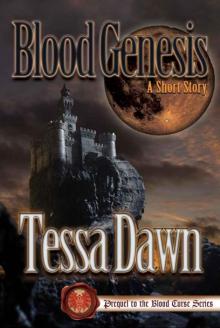 Blood Genesis
Blood Genesis Christmas in Dark Moon Vale
Christmas in Dark Moon Vale Blood Ecstasy
Blood Ecstasy Daywalker_The Beginning_A Dark Fantasy Short Story
Daywalker_The Beginning_A Dark Fantasy Short Story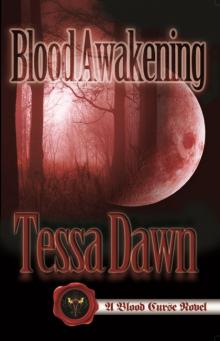 Blood Awakening
Blood Awakening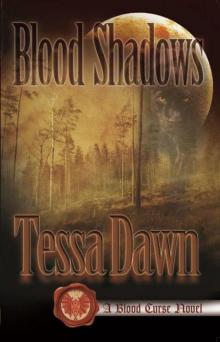 Blood Shadows
Blood Shadows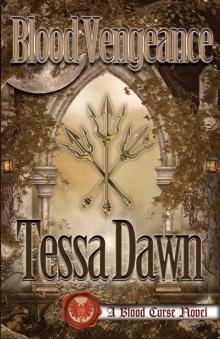 Blood Vengeance
Blood Vengeance Dragons Reign
Dragons Reign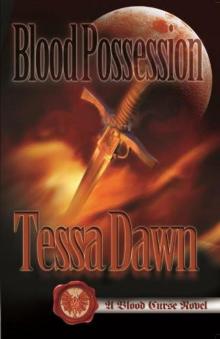 Blood Possession
Blood Possession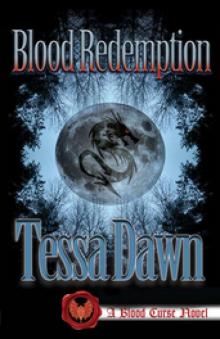 Blood Redemption
Blood Redemption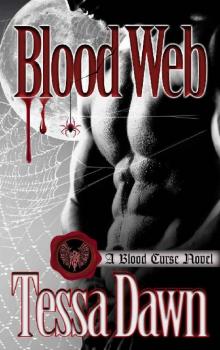 Blood Web
Blood Web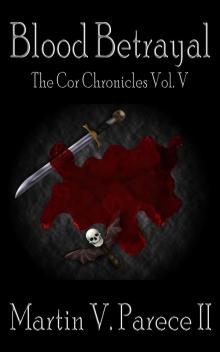 Blood Betrayal
Blood Betrayal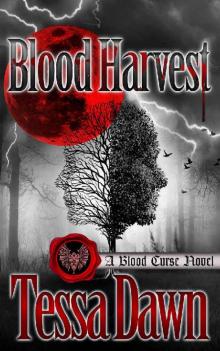 Blood Harvest (Blood Curse Series Book 12)
Blood Harvest (Blood Curse Series Book 12) Blood Destiny
Blood Destiny Daywalker: The Beginning
Daywalker: The Beginning Zanaikeyros: Son of Dragons
Zanaikeyros: Son of Dragons Dragons Realm
Dragons Realm Axeviathon - Son of Dragons: A Pantheon of Dragons Novel
Axeviathon - Son of Dragons: A Pantheon of Dragons Novel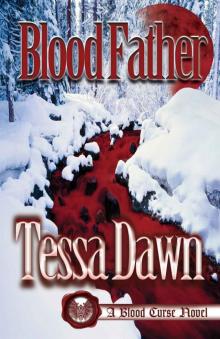 Blood Father
Blood Father Axeviathon- Son of Dragons
Axeviathon- Son of Dragons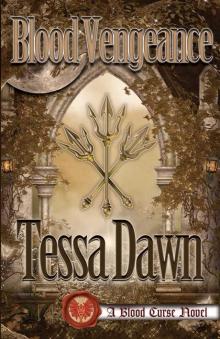 Blood Vengeance (Blood Curse Series Book 7)
Blood Vengeance (Blood Curse Series Book 7)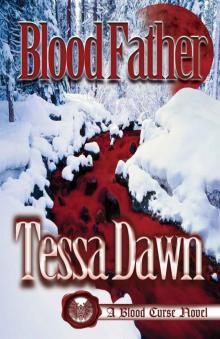 Blood Father (Blood Curse Series)
Blood Father (Blood Curse Series)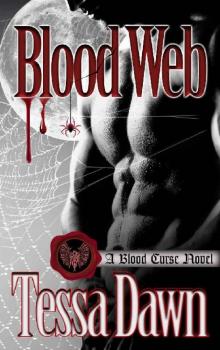 Blood Web_A Blood Curse Novel
Blood Web_A Blood Curse Novel Blood Ecstasy (Blood Curse Series Book 8)
Blood Ecstasy (Blood Curse Series Book 8) Zanaikeyros – Son of Dragons (Pantheon of Dragons Book 1)
Zanaikeyros – Son of Dragons (Pantheon of Dragons Book 1)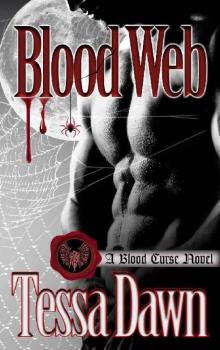 Blood Web: A Blood Curse Novel (Blood Curse Series Book 10)
Blood Web: A Blood Curse Novel (Blood Curse Series Book 10)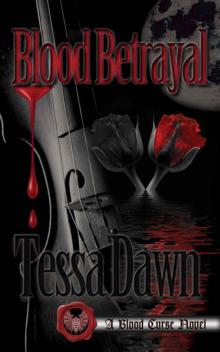 Blood Betrayal: A Blood Curse Novel (Blood Curse Series Book 9)
Blood Betrayal: A Blood Curse Novel (Blood Curse Series Book 9)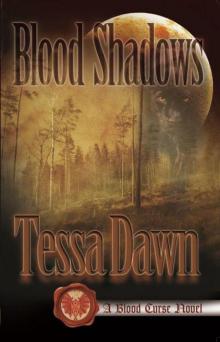 Blood Shadows (The Blood Curse Series)
Blood Shadows (The Blood Curse Series) Dragons Reign: A Novel of Dragons Realm (Dragons Realm Saga Book 2)
Dragons Reign: A Novel of Dragons Realm (Dragons Realm Saga Book 2) Daywalker ~ The Beginning: A Dark Fantasy Short Story
Daywalker ~ The Beginning: A Dark Fantasy Short Story